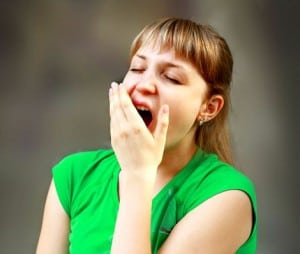
The study group consisted of 35 high school students with a mean age of 16.5 years. The researchers gathered objective and subjective data about the participants’ sleep for weeks prior to the spring time change and for the week after. They used actigraphy devices to gather information about sleep duration. The participants also completed a sleep diary. The researchers measured sleepiness and vigilance with the Karolinska Sleepiness Scale and the Psychomotor Vigilance Test.
The participants slept less after the time change than in the weeks leading up to daylight saving time. After the time change, participants slept an average of 32 minutes less each night than they had in the prior week. They lost a cumulative total of 2 hours, 42 minutes after the time change.
During the school day, the participants exhibited greater sleepiness and diminished psychomotor vigilance after the time change. Diminished psychomotor vigilance increased the participants’ reaction times and the frequency of lapses in attention.
“For many years now, sleep researchers have been concerned about sleep deprivation in adolescents. This study unveils a potential additional factor that may further restrict their sleep in early spring,” stated principal investigator Dr. Ana Krieger, associate professor of clinical medicine and medical director of the Weill Cornell Center for Sleep Medicine at New York-Presbyterian Hospital.
The American Academy of Sleep Medicine recommends that adolescents sleep around nine hours each night.
This research is published in the Journal of Clinical Sleep Medicine.
Previous news in sleep:



 © 2026 Unyte Health US Inc.
© 2026 Unyte Health US Inc.